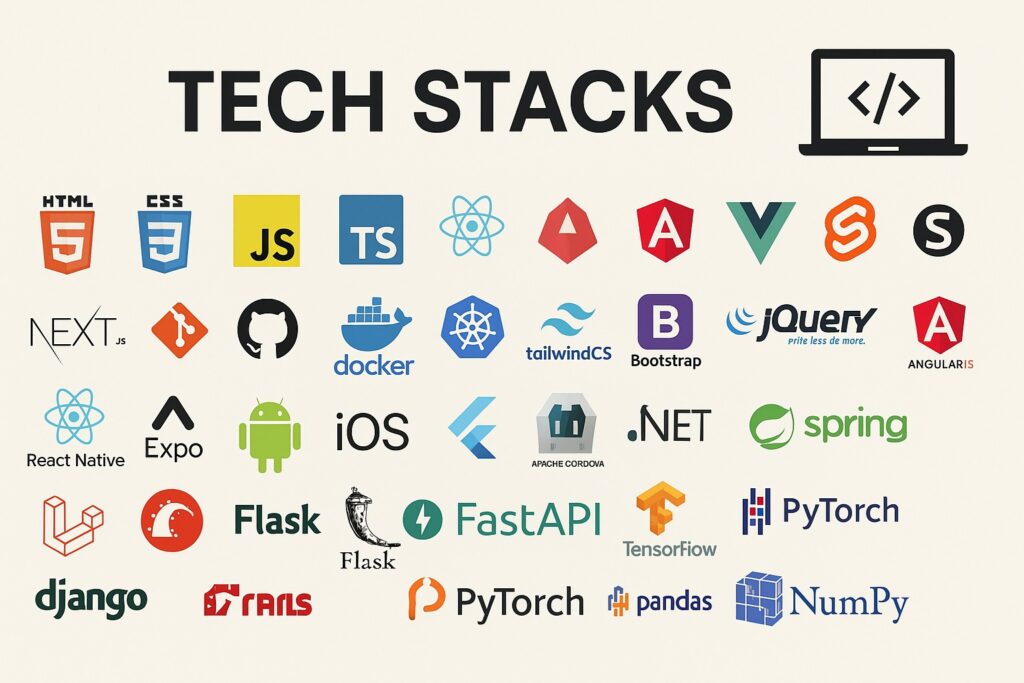Introduction

A hackathon is like a coding marathon – a supercharged event where people come together to create tech-based solutions to problems in a short amount of time, usually within 24 to 72 hours. It’s fast, fun, and often intense – think of it as the Olympics for geeks.
Types of Hackathons
- Corporate coding sprint – Run by companies for innovation or recruitment
- College coding sprint – Organized in universities for student developers
- Social Good coding sprint – Tackle societal problems like climate or health
- Hardware coding sprint – Focus on IoT, robotics, and electronics
- Online coding sprint – Remote participation from anywhere
Why Are Hackathons Important?
Innovation and Creativity
coding sprint are breeding grounds for original ideas. No red tape, just code and caffeine.
Real-World Problem Solving
From building apps to fight climate change to automating a smart dustbin – Coding Events bring real issues into focus.
Collaboration and Teamwork
You’ll learn to work with others under pressure – like group projects, but with way cooler rewards.
Who Can Participate in a Coding Events?
Students
College students and even high schoolers are welcome. It’s a great way to build your resume.
Professionals
Many professionals join to test new ideas or learn new skills. It’s like a weekend crash course in innovation.
Beginners and Hobbyists
You don’t have to be a coding ninja. If you’ve got ideas and curiosity, there’s a place for you.
How to Participate in a Hackathon?
Finding the Right coding sprint
Start with platforms like:
Registration Process
Each event will have a sign-up process, either solo or team-based. Just fill the form and mark your calendars!
Building or Joining a Team
Some hackathons assign teams, others let you build your own. Bring your friends or meet new ones.
Preparing Before the Event
- Learn the theme (if any)
- Sharpen your skills
- Install tools and software
- Brainstorm ideas beforehand
What Happens During a Hackathon?
Kick-Off and Introductions
It all begins with an energetic launch – rules, theme announcement, and motivational talks.
Brainstorming and Planning
You’ll spend the first few hours tossing ideas like a mental food fight. Pick the best one and get started.

Development and Execution
This is the core – coding, designing, debugging, testing. Expect minimal sleep and max caffeine.
Final Submission and Judging
Wrap up with a demo or presentation. A panel of judges evaluates your work.
Online vs Offline coding sprint
Pros and Cons of Online Hackathons
- Participate from home
- Flexible schedule
- Limited face-to-face interaction
- Internet or technical issues
Pros and Cons of Offline coding sprint
- Networking and social bonding
- More intense and immersive
- Travel and accommodation costs
Tools and Technologies Commonly Used
Programming Languages
- JavaScript, Python, C++, Java, Go – depends on the project
Project Management Tools
- Trello, Notion, Slack – keeps your team on track
Collaboration Platforms
- GitHub, GitLab, Figma – code together, design together

Tips to Win a coding sprint
Focus on the Problem
Solve a real problem, not just something flashy.
Keep the Solution Simple
Don’t over-engineer. Simple solutions are often the most effective.
Use Your Strengths
If you’re great at UI, focus on design. Got a math brain? Handle logic and backend.
Impress with Presentation
Even if your project is half-baked, a killer pitch can make it shine.
Benefits of Participating in a Hackathon
Skill Improvement
Fast-paced learning. You’ll level up in hours what would take weeks.
Networking Opportunities
You’ll meet mentors, recruiters, and fellow geeks who might just become co-founders.
Prizes and Recognition
Cash, gadgets, internships – coding sprint come with sweet rewards.
Career and Internship Opportunities
Companies often scout coding sprint to find their next hire.
Common Challenges Faced in Hackathons
Time Management
You have just hours – prioritize and don’t chase perfection.
Team Conflicts
Communication is key. Respect each other’s ideas.
Technical Glitches
Always back up your work. Have a Plan B (and maybe Plan C).
What Judges Look for in Hackathons
Innovation
Is your idea unique or a copy-paste?
Functionality
Does it work? Even a basic working prototype can score big.
Presentation and Pitch
A great pitch can turn judges into fans.
Examples of Popular Hackathons
Major League Hacking (MLH)
The biggest student coding sprint league globally.
NASA Space Apps Challenge
Solve space and Earth science problems. Yes, it’s as cool as it sounds.
AngelHack and TechCrunch Disrupt
Premier platforms for global innovation.
How to Make the Most Out of a Hackathon
Keep Learning
Every moment is a chance to learn something new.
Ask for Feedback
Talk to mentors and judges. Learn where you can improve.
Stay in Touch with the Community
Join Discords, follow communities, and keep that momentum going.
Can You Participate Without Coding?
Roles for Designers and Idea Generators
You can be the UI/UX designer, the product thinker, or even the pitch guru.
Importance of Non-Tech Skills
Marketing, communication, design – all play key roles in coding sprint.
Future of Hackathons
Evolving Trends
AI-powered hackathons, blockchain themes, and sustainable solutions are hot trends.
Inclusivity and Global Participation
Online platforms are making hackathons more accessible to everyone, everywhere.
🏁 Conclusion
Hackathons are more than just competitions – they’re launchpads for ideas, friendships, and careers. Whether you’re a newbie or a pro, coder or designer, there’s a place for you in the coding sprint world. So gear up, pick a challenge, and start hacking. The experience will change the way you think, build, and collaborate.
FAQs
Do I need to be a programmer to join a hackathon?
Nope! Designers, marketers, and idea people are equally valuable in a hackathon team.
What do I bring to a physical hackathon?
Laptop, chargers, snacks, water bottle, and maybe a pillow. Don’t forget your energy!
Are hackathons free to attend?
Most student and online hackathons are free. Some corporate ones might charge a fee.
How long do hackathons usually last?
Anywhere from 12 to 72 hours. Some even run for a whole week online.
Can I use pre-built code or templates?
Yes, as long as the rules allow it. Always check the hackathon’s guidelines.
Read More : How to Build a Number Guessing Game



